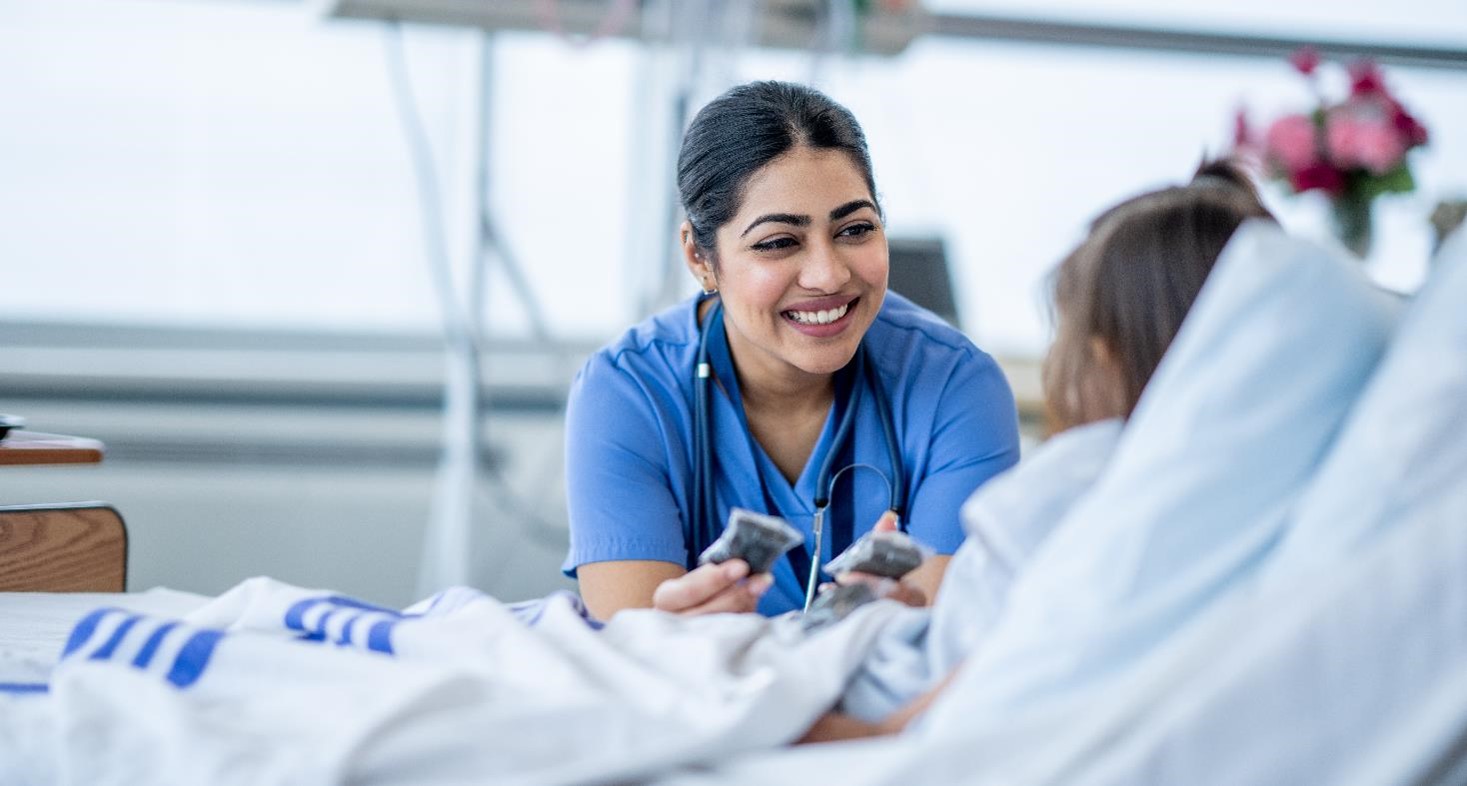Solutions like Dragon Medical One have transformed clinicians’ documentation workflows by streamlining time-consuming and administrative tasks, which in turn helps combat burnout and turnover. But what about nurses? In the US, they outnumber clinicians four to one and are held equally accountable for documenting patient care effectively. Yet, there has traditionally been a lack of innovation to help nurses document care more efficiently. It’s time that changed. To celebrate National Nurses Week 2023, we’re sharing our perspective on the future of nursing and the innovation to come.
Every year, National Nurses Week spotlights nurses, their heroic work, and the intense challenges they face—bringing much-needed attention to their everyday pain points and triumphs.
I recently attended a CNO Exchange event, where I heard directly from nursing leaders about how burnout, high turnover, and inefficient clinical processes are impacting their teams. While it was great to hear the conversation center around nurses and their needs, the event underlined just how urgently these challenges need to be addressed, and the fact that technology can, and must, do more to help.
Take the burden of clinical documentation. Studies have shown that nurses can spend nearly 25% of their time maintaining accurate, up-to-date clinical documentation—and not all of it is time well spent. A significant proportion of documentation is redundant, and there’s debate around how much of the information nurses are required to capture actually drives care team coordination and care management.
But at Nuance, we have an unrivalled track record of using technology to improve clinical documentation quality and workflows. We can apply our deep experience and proven solutions to help solve the very specific challenges that nurses face.
So that’s exactly what we’ve been doing.
What do nurses really need — and how do we provide it?
While clinicians and nurses both create and maintain clinical documentation, their workflows look very different. So, when we decided to create a clinical documentation solution specifically for nurses, we knew we would need to build it from the ground up.
We’ve been working side by side with nurses to gather valuable insights on their unique challenges, aspirations, and workflows. We’ve brought nursing leadership directly into our feedback loop to help us craft a comprehensive, relevant solution that’s tailor-made for nurses.
With nurses on-the-go for most of their working day, we knew we had to find a new way to maximize mobility and flexibility. By taking a mobile-first approach, we can better adapt to the unique nursing workflow so that patients can be kept at the forefront and technology can be kept in the background.
Empowering nurses, easing burdens, and creating more time for patient care
With Dragon Ambient eXperience, we’ve proven how effective ambient AI can be at combating cognitive overload and freeing up more time for patient care. We believe there is tremendous potential to combine the power of conversational, ambient and generative AI to optimize the nursing workflow.
This means empowering nurses to complete flowsheets faster, eliminating endless clicks and complex data entry processes, and automating many of the routine tasks that divert nurses’ attention away from patient care and contribute to burnout. With technology taking care of these repetitive tasks, we can significantly reduce the cognitive load nurses are asked to bear. As well as helping to safeguard the resilience of the nursing community, this will mean nurses are able to spend more time supporting patients and providing care.
A transformational solution for nurses
Nursing has always been a demanding line of work—and in many ways, it always will be. I’ve seen firsthand the lifechanging work nurses do, and how much of a burden that can become without the right support. Developing enabling technologies that empower nurses to spend less time on administrative tasks and more time engaging with patients, we can ease that demand and help nurses be at their best, always—and it makes me extremely proud to offer more than just words of appreciation and support. As part of Microsoft, we share its commitment to productivity—and we’re so excited to be applying our capabilities to help solve some of the most significant and persistent challenges in all of nursing.
We are heads down applying AI and voice technology to enable nurses to be eyes free, hands free so that they can get time back in their day to focus on clinical care and patient outcomes. This National Nurses Week, I think we can all agree that nurses deserve better, and in this new era of AI we are excited to bring breakthrough technologies to the nursing workforce.







